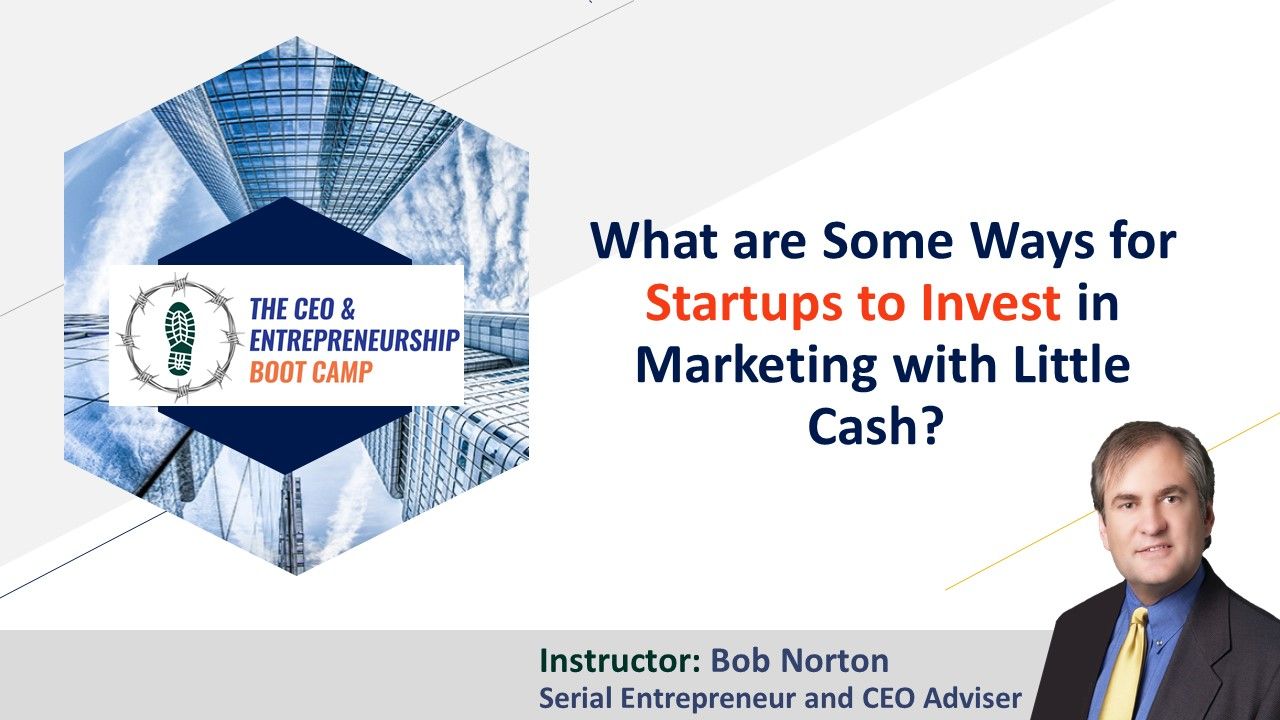What are Some Ways for Startups to Invest in Marketing with Little Cash?

You cannot grow a company without some investment in sales and/or marketing. The question is really your time versus capital and which would generate the best results (ROI, speed, quality of leads, etc.). If your business model and products are sound, you should likely raise some capital, as it will be needed for more than marketing. It is nearly impossible to build a significant business without some capital and/or sweat equity invested. You cannot create something out of nothing.
Social media allows unpaid marketing and is the most obvious strategy. This can be time-consuming but is also rapid to measure and so can be used to test the messaging and refine it quickly.
The more unique your product or service, the smaller the marketing budget you will need. For example, Tesla spends extremely little compared to other automakers on both marketing and sales. Word of mouth does it for you when you have strong and unique products. “Differentiation” is the most important factor for a startup to be successful. That is relative to and within the target market. Obviously, if you are the only gas station for 50 miles, you have a captive audience and do not need to spend much money on advertising.
There are several marketing strategies that startups can use, even with little initial capital. Some of these strategies include referrals, press releases and news features, content marketing, SEO, social media marketing, email marketing, PPC ads and personal branding. Another strategy is designing win-win collaborations with other companies to help both grow while saving time, money, and effort. When a company has the same target customer, partnerships are possible. These can be a revenue share commission, trading leads or many other structures that does not require upfront investment. On the web these are often called ab “Affiliate relationship” or JVs, short for joint venture, though that is not an accurate term as real JVs are more elaborate relationships, but it has become part of the web vocabulary.
There are literally hundreds of marketing strategies and tactics, and it is impossible to give specifics without knowing lots of information about your product/service. This is how fractional Chief Marketing Officers (CMOs) and marketing consultants make their money. It can take a lot of work to research and design a strong marketing program. Or you can use trial and error, which can take years. Either way, marketing is a forever A/B testing process as the world evolves. I did a search and found these links.
9 Low-Budget Marketing Strategies Every Startup Can Afford. 9 Low-Budget Marketing Strategies Every Startup Can Afford 9 Low-Budget Marketing Strategies Every Startup Can Afford | Entrepreneur
Startup Marketing Strategy: 18 Ideas and Tactics That ... - HubSpot. Startup Marketing Strategy: 18 Ideas and Tactics That Actually Work
See my courses on marketing strategy here, and a Professional Marketing Strategy Certification. Peter Drucker, The Father of Management, says a company has two main jobs, marketing, and innovation. Any entrepreneur, future founder or C-Level executive must study marketing.
Bob Norton is a long-time Serial Entrepreneur and CEO with four exits that returned over $1 billion to investors. He has trained, coached and advised over 1,000 CEOs since 2002. And is Founder of The CEO Boot Camp™ and Entrepreneurship University™. Mr. Norton works with companies to triple their chances of success in launching new companies and products. He helps established companies scale faster using the six AirTight Management™ systems. And helps companies raise capital.
What can we help you with today? Scaling, training, consulting, coaching?
Call (619) SCALE06 or (619) 722-5306 9am-6pm CT
Or Schedule a free 30-minute strategy session by clicking here.


